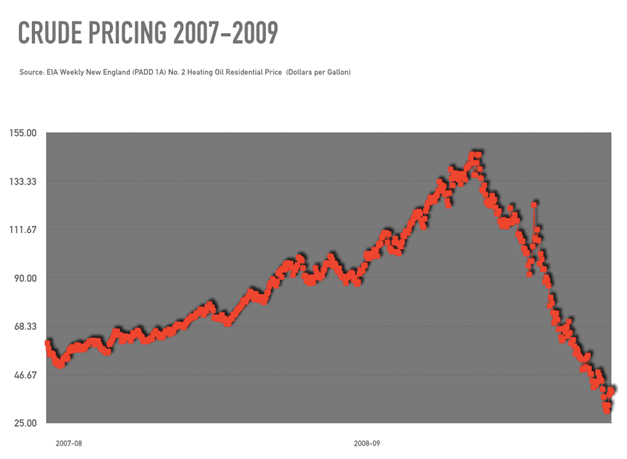Evaluating the Influence of Oil Price Adjustments on Home Heating Expenses
The evaluation of the effect of oil rate changes on home heating expenses is a critical area of research study in the area of energy economics. As oil rates are subject to changes as a result of a variety of factors, comprehending their impact on home heating expenses is crucial for policymakers and house owners alike - long island oil prices. This research study aims to lose light on the historic trends in oil costs, the variables that drive their changes, and the succeeding impacts on home heating prices. By analyzing this partnership, we can obtain important insights into the monetary ramifications for house owners and discover possible policy measures to mitigate the impact of oil price changes on heating costs. This study looks for to add to a much deeper understanding of the characteristics in between oil rates and home heating costs, supplying useful info for both decision-makers and individuals.
Historic Fads in Oil Costs
Over the past half a century, oil costs have experienced substantial changes, impacting the price of home heating. Comprehending the historical fads in oil costs is important for evaluating the influence on home heating expenses.

In the 1980s and 1990s, oil prices experienced a period of family member security. Technical advancements in oil extraction and production, such as overseas exploration and shale oil removal, added to a stable supply and assisted keep costs in check. Nonetheless, periodic political stress and problems in oil-producing areas continued to impact oil prices intermittently. long island oil prices.
Since the early 2000s, oil prices have been subject to increased volatility. The rise of emerging economies, specifically China and India, has actually brought about a rise in international power demand, putting upward pressure on oil prices. Additionally, geopolitical stress between East, ecological guidelines, and currency fluctuations have all included to the volatility in oil markets.
Variables Affecting Oil Cost Fluctuations
Factors affecting oil cost changes include global financial conditions, geopolitical events, and supply and need characteristics. These aspects contribute to the volatility and unpredictability of oil rates, influencing not only the energy industry yet likewise various fields of the economic situation and customers' purses.
Global financial conditions play a significant duty in oil cost fluctuations. Financial growth and stability in significant oil-consuming countries such as the USA, China, and India can cause enhanced need for oil, increasing prices. Alternatively, financial recessions or stagnations can result in lowered demand, creating costs to drop.
Geopolitical events additionally have a considerable influence on oil rates. Political instability, problems, and sanctions in significant oil-producing regions such as the Center East can interrupt oil supply and create unpredictability, resulting in rate spikes. Tensions in the Persian Gulf region can interfere with the flow of oil with the Strait of Hormuz, a crucial transit factor for global oil shipments.
Supply and need characteristics are fundamental aspects that affect oil prices. When supply surpasses need, rates tend to drop, while when need goes beyond supply, prices have a tendency to climb. Factors such as production choices by significant oil-producing nations, changes in oil stocks, and disturbances in oil infrastructure can all impact the balance in between supply and need, creating price fluctuations.
Comprehending these aspects is essential for policymakers, energy business, and customers to prepare for and react to oil price modifications. By checking global economic conditions, geopolitical this website occasions, and supply and need characteristics, stakeholders can better manage the impact of oil cost variations on home heating costs and other sectors of the economic climate.
Comprehending the Partnership In Between Oil Rates and Home Heating Prices
The connection in between oil rates and home heating costs can be understood by taking a look at the effect of adjustments in oil rates on the cost of home heating. Oil prices play a considerable function in establishing the quantity homeowners pay to heat their homes during the winter months. When oil costs increase, the expense of home heating oil additionally raises, which straight influences the price of home heating. This is because heating oil is derived from crude oil, and any fluctuations in crude oil rates are mirrored in the rate of home heating oil.
When oil rates are high, home owners often experience a spike in their home heating expenses, as they need to acquire extra costly heating oil to maintain their homes cozy. On the other hand, when oil rates are reduced, property owners benefit from reduced heating prices, as the cost of heating oil lowers. This partnership in between oil costs and heating prices is especially important for families that depend on home heating oil as their main source of warmth.
It is vital for property owners to monitor oil rates carefully, as adjustments in oil costs can have a significant influence on their monthly home heating expenses. By comprehending the connection between oil rates and home heating expenses, home owners can make educated choices regarding their heating unit and budget successfully for the winter period.
The Influence of Oil Cost Adjustments on Property Owners' Spending Plans

The effect of oil cost changes on homeowners' budgets expands past just the price of home heating. Higher oil prices can additionally cause increases in transport expenses, as fuel rates climb. This can have a cascading effect on house budget plans, as transportation expenditures can consume into optional earnings and limit the capacity to save or spend.
.png?lang=en-US)
Plan Implications for Attending To the Effects of Oil Cost Adjustments on Home Heating Costs
To properly address the impacts of oil rate changes on home heating expenses, policymakers have to consider different strategies and procedures. One feasible policy implication is to promote power performance in homes. By incentivizing homeowners to upgrade their home heating systems to extra efficient alternatives, such as heatpump or photovoltaic panels, the overall demand for home heating oil can be lowered. In addition, policymakers can implement policies and requirements that call for brand-new homes to be constructed with energy-efficient heater.
One more technique is to diversify the power sources utilized for recommended you read home heating. Policymakers can encourage using alternative fuels, such as all-natural gas or biomass, which are much less prone to oil cost changes (oil prices long island). This can be achieved via tax obligation rewards, grants, or subsidies for homeowners that select to switch to these alternative gas
In addition, policymakers can support r & d initiatives in sustainable energy modern technologies. Spending in developments in the field of eco-friendly heating can lead to the Visit This Link growth of economical and eco-friendly options to oil-based heating unit.
Last but not least, policymakers ought to take into consideration carrying out income-based support programs to help low-income houses cope with the influence of oil cost adjustments on their heating prices. These programs can offer financial backing or aids to assist counter the enhanced expenditures connected with greater oil prices.
Verdict
Finally, assessing the impact of oil rate changes on home heating expenses discloses historical fads in oil prices and elements affecting fluctuations. Comprehending the partnership between oil costs and home heating costs enables a far better understanding of the impact on house owners' spending plans. Policy ramifications are essential for dealing with the impacts of oil rate changes on home heating expenses.
The connection in between oil rates and heating costs can be comprehended by checking out the impact of changes in oil costs on the expense of home heating. When oil rates rise, the cost of heating oil likewise boosts, which straight influences the cost of home heating.When oil prices are high, property owners usually experience a spike in their heating costs, as they need to purchase much more costly home heating oil to maintain their homes cozy. On the various other hand, when oil costs are reduced, house owners profit from reduced home heating costs, as the cost of home heating oil reduces.In final thought, examining the effect of oil cost modifications on home heating expenses exposes historical trends in oil prices and factors influencing fluctuations.